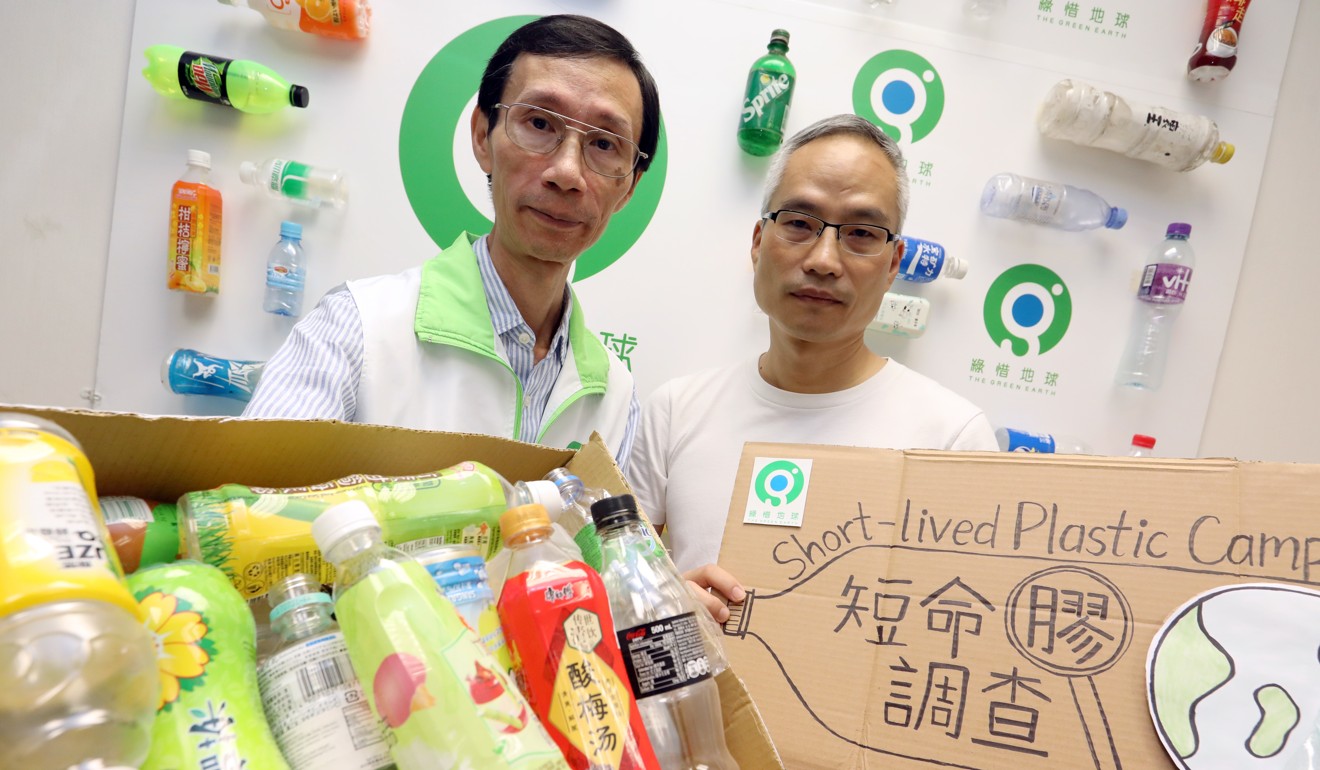
Major Hong Kong drinks manufacturers join forces with green groups for initiative aimed at increasing city’s dismal recycling rate
- Programme plans to raise the recovery rate of single-use drink bottles and containers from single digits to over 70 per cent in six years
- Participating companies include Watsons Water, Swire Coca-Cola, Dairy Farm and Vitasoy
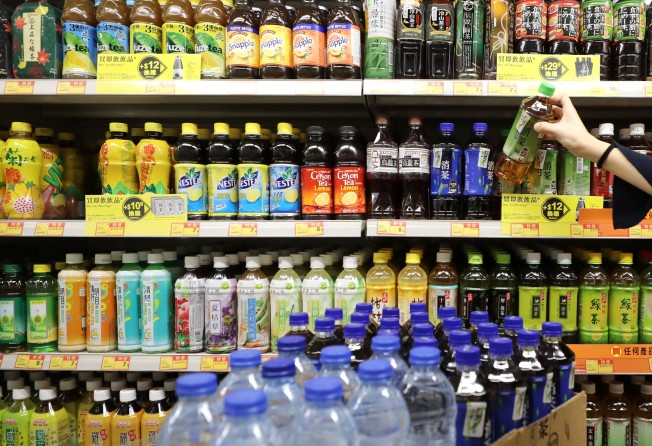
Hong Kong’s biggest drink manufacturers have made an unprecedented pledge to work with green groups and raise the recovery rate of single-use bottles and containers in the city from single digits to more than 70 per cent in just six years.
The targets under the Drink Without Waste initiative – run on a voluntary basis – were announced on Thursday by a new coalition calling itself the Single-use Beverage Packaging Working Group, which comprises charities and environmental groups, as well as drink producers, bottlers, recyclers and retailers.
Strategies studied include levying beverage producers and importers to fund a “cash on return” scheme for plastic bottles and reducing single-use packaging for drinks by installing more water dispensers around town.
Producers are also being urged to review packaging standards and use materials or designs that can facilitate easier recovery or recycling, such as eliminating PVC labels and reducing the weight of packaging.

Hong Kong has to build state-of-the-art recycling facilities to take care of our own waste
“Hong Kong [also] has to build state-of-the-art recycling facilities to take care of our own waste. This in turn will help develop a circular economy and enable our city to become more sustainable,” said Edwin Lau Che-feng of environmental advocacy group The Green Earth and spokesman for the coalition.
In her latest policy address, Chief Executive Carrie Lam Cheng Yuet-ngor promised to press ahead with introducing a producer responsibility scheme for plastic bottles.
Environment officials are also introducing a HK$4 million pilot scheme of reverse vending machines for plastic bottles next year to assess performance and effectiveness at various locations.
Lau said such voluntary measures were necessary to stem the waste crisis until more producer responsibility schemes are legislated for to cover particularly troublesome items as plastic bottles and drink cartons. Such schemes make producers pay for collection and recycling.
The initiative would hinge on manufacturers “being transparent and reporting on an annual basis to the working group and to the public, their mileage in terms of reducing and recycling single-use packages,” Lau added.
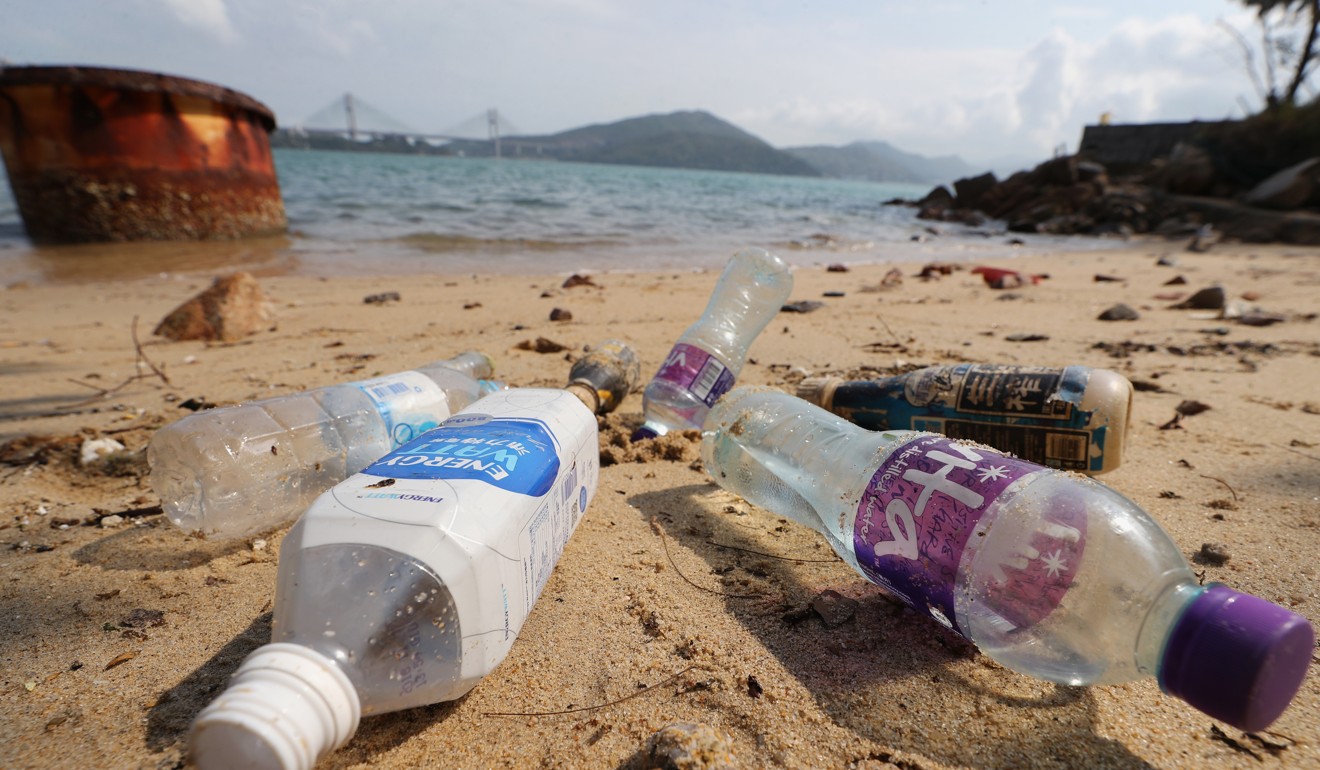
Last year, about 1.7 billion waste beverage containers were dumped into the city’s overflowing landfills or, worse, scattered over land or in the sea, two-thirds of which were plastic bottles and one-fifth drink cartons, the group said.
At least 158 tonnes of single-use plastic bottles are sent to rubbish tips, but only 9 per cent are recovered and 83 tonnes of drink cartons per day meet the same fate but almost none are salvaged.
The group, citing research commissioned to consultants Deloitte and Cistri, estimated that the measures would help the city increase the dismal recovery rates to anywhere from 70 to 90 per cent between 2025 and 2030.
Members of the coalition include Watsons Water, Swire Beverages, Swire Coca-Cola, Dairy Farm, Vitasoy and the Hong Kong Beverage Association trade group. The companies on board represent one in two bottled water and soft drink items sold in the city.
Also on board are retailers and organisations such as the AS Watson and Dairy Farm groups, the MTR Corporation, the Jockey Club and Airport Authority.
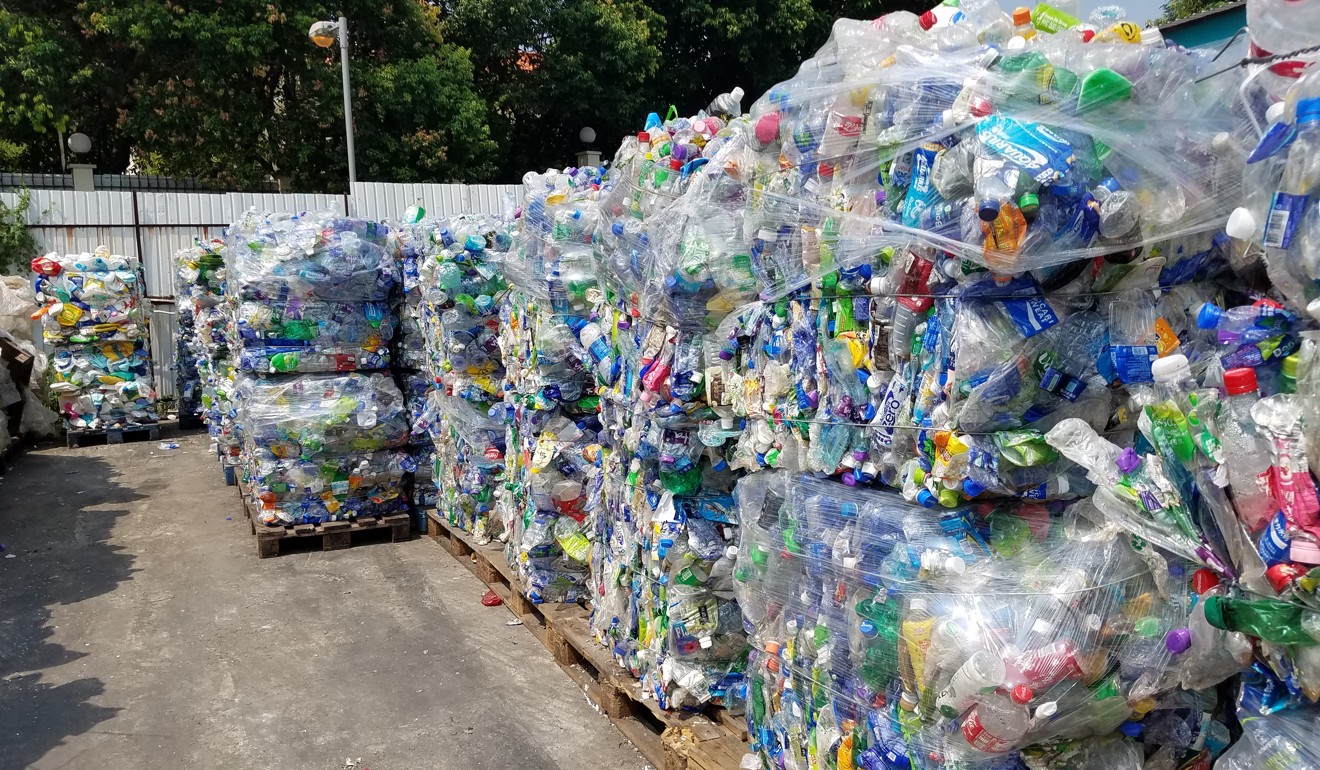
It is a rare display of cooperation between the private sector and environmental advocacy groups, which have long pressured firms to do more.
“This is the first time the industry has come together for such an important means,” said Neil Waters, an executive at Swire Beverages and head of the Beverage Association.
“The fact that 5 million beverage [containers] are going into the landfill on a daily basis is not a sustainable solution. To be successful, this has to be a shared scheme and everyone in the supply chain has a role to play.”
Watsons said all of its bottles were already made of recycled PET material and that it would explore more sustainable options.
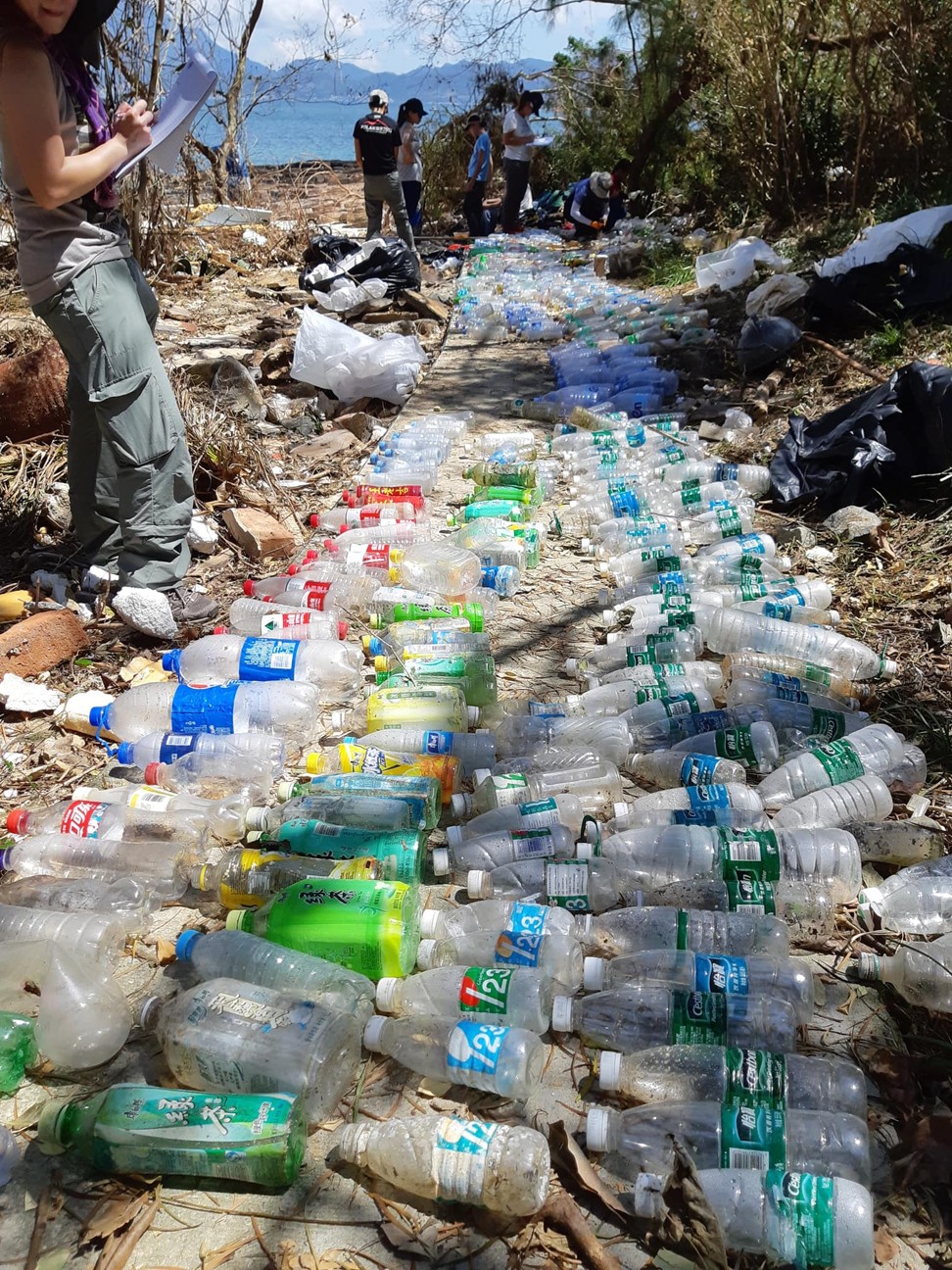
Swire Coca-Cola, which also bottles Bonaqua, have so far proposed the most concrete measures, including HK$150 million in production equipment and packaging over the next five years to support the growth of refillable and reusable drink packaging.
Vitasoy said it was redesigning plastic bottles and caps to reduce waste, implement a pilot programme to use reverse vending machines to aid container recovery and study the viability of a “cash on return” test scheme.
Despite the commitments, The Green Earth – a member of the working group – said a lot of progress would need to be made and the current reduction measures by producers were not aggressive enough.
Several smaller drink producers have not signed on to the initiative and lacked any recycling commitments.